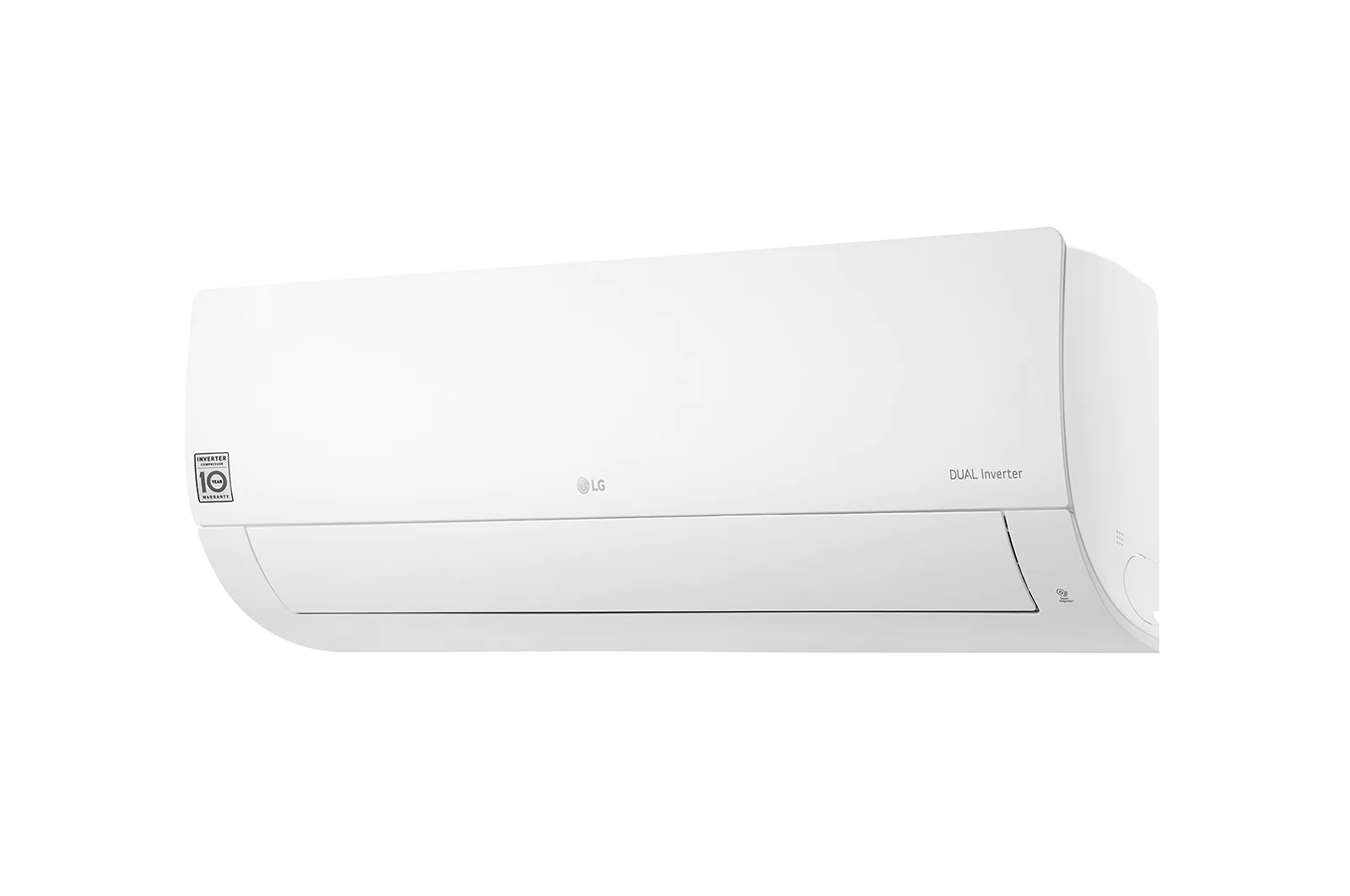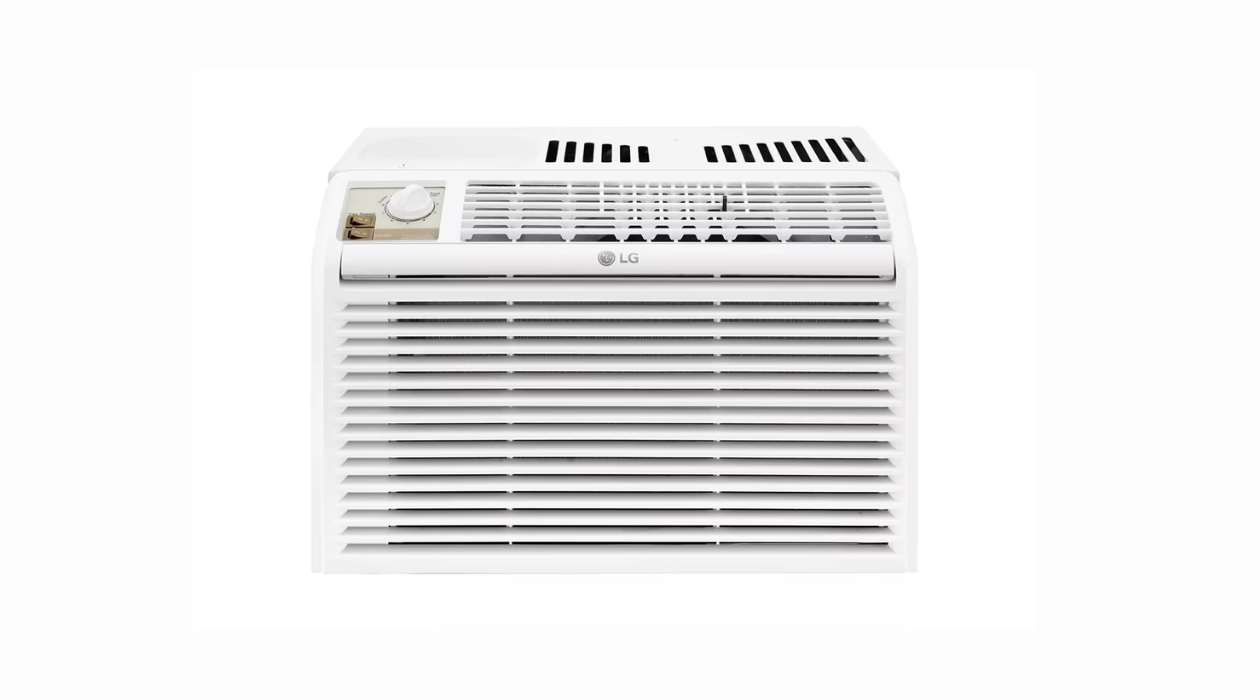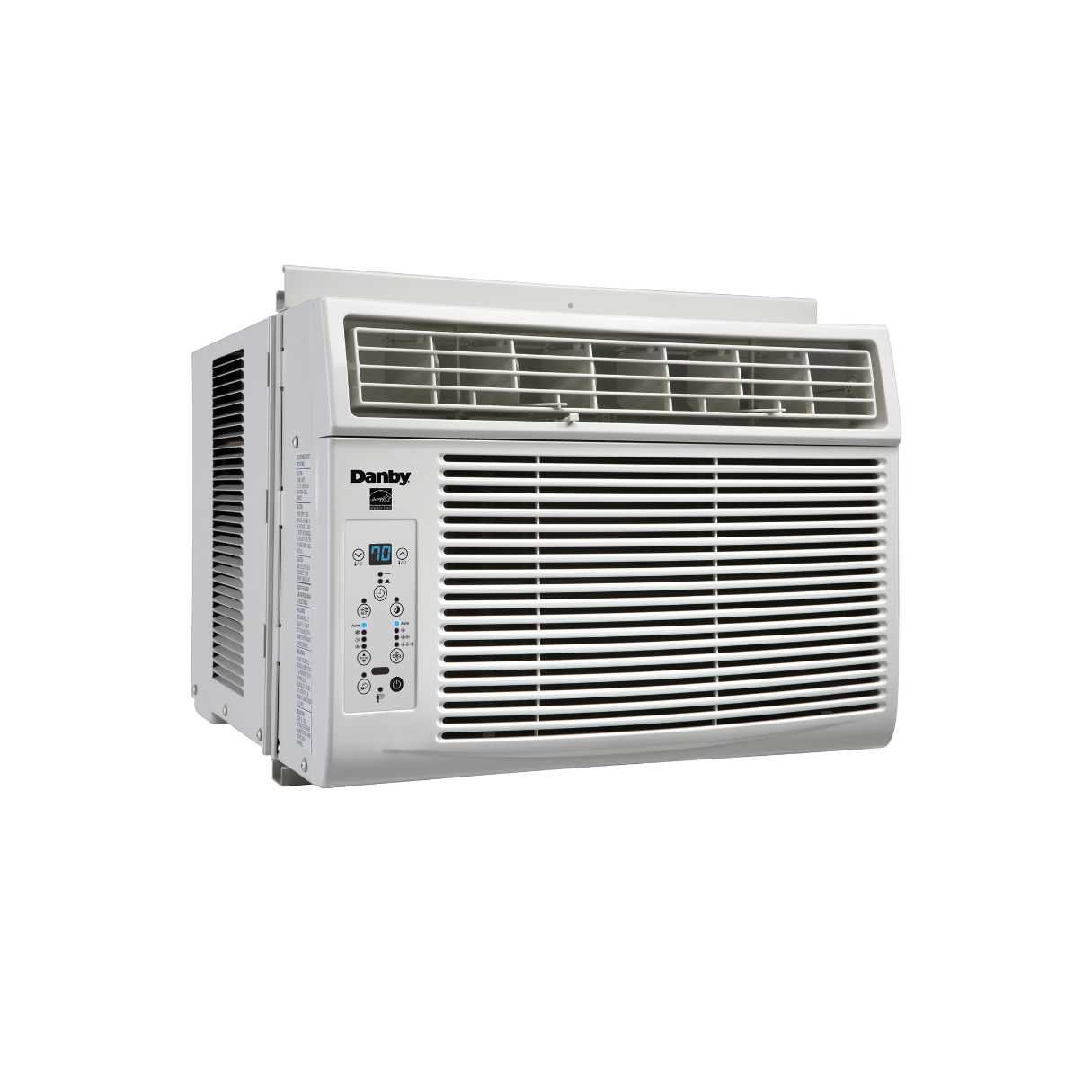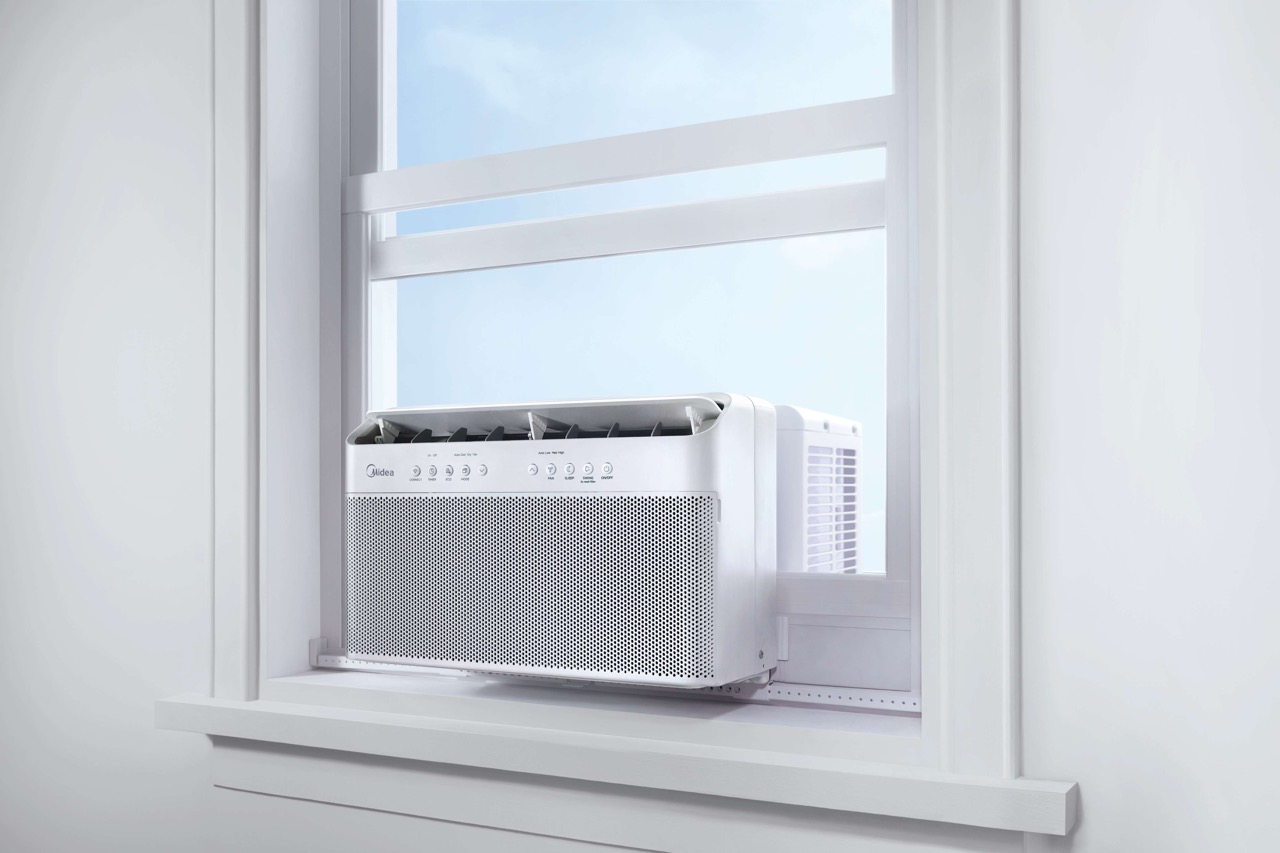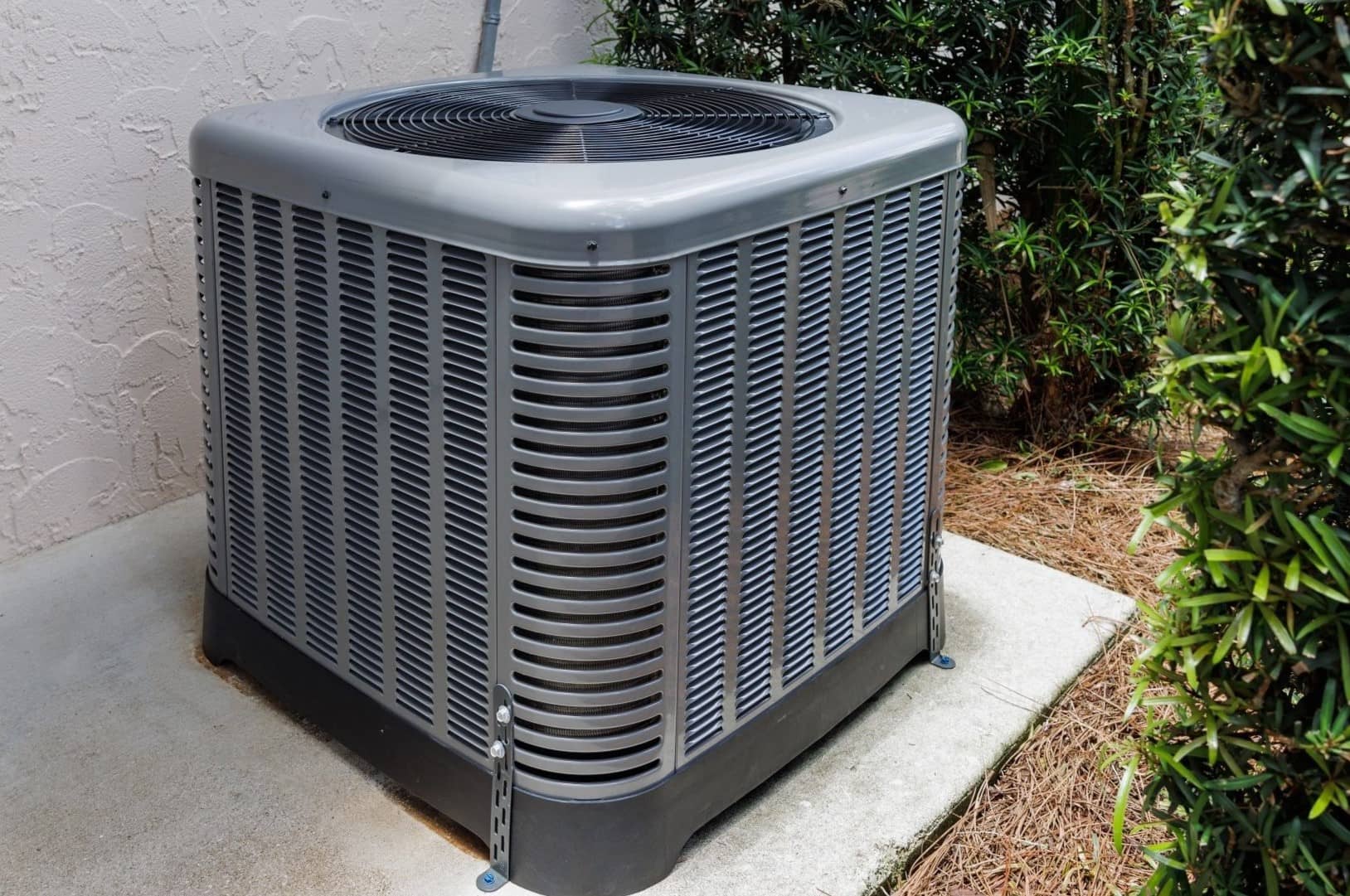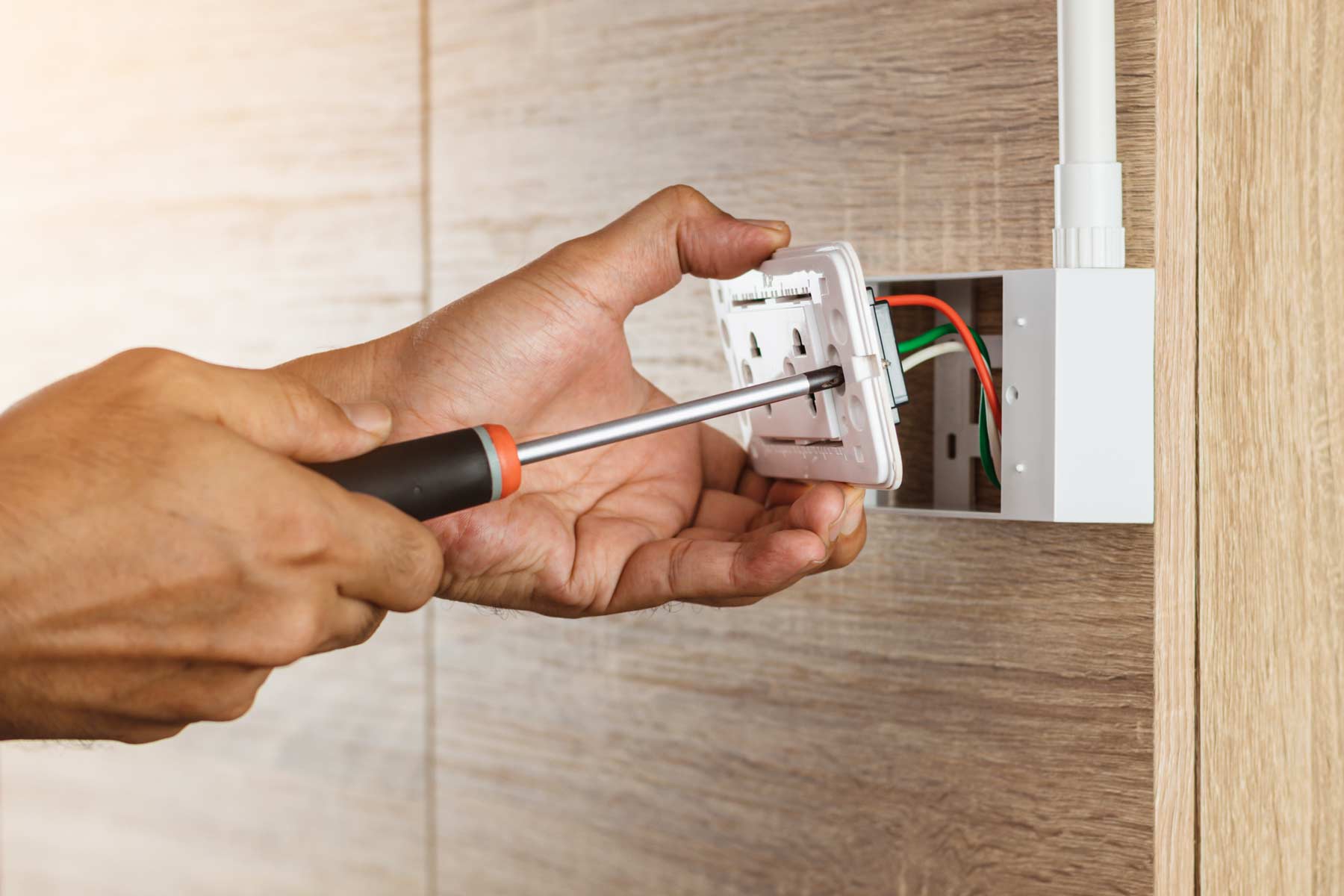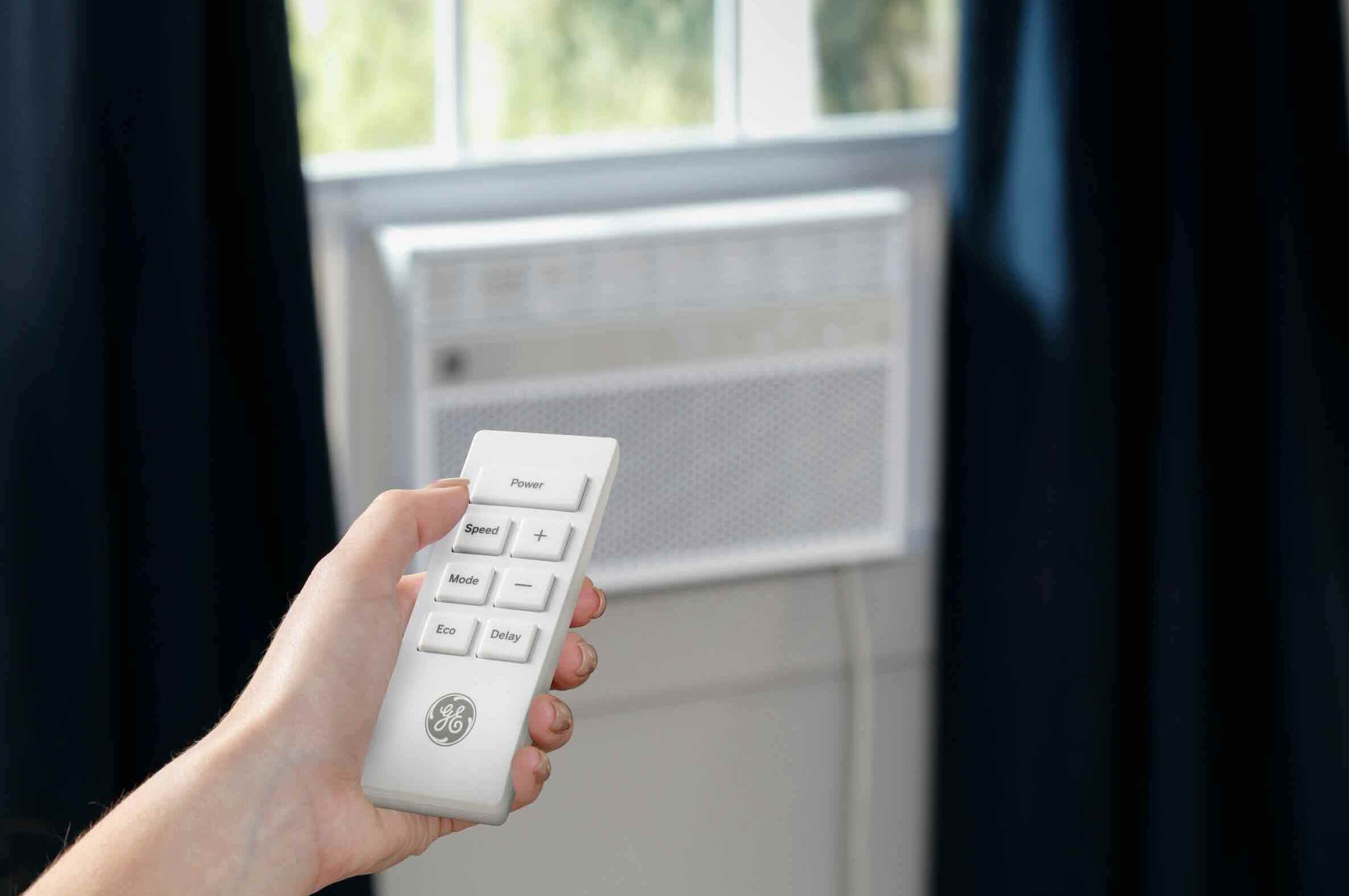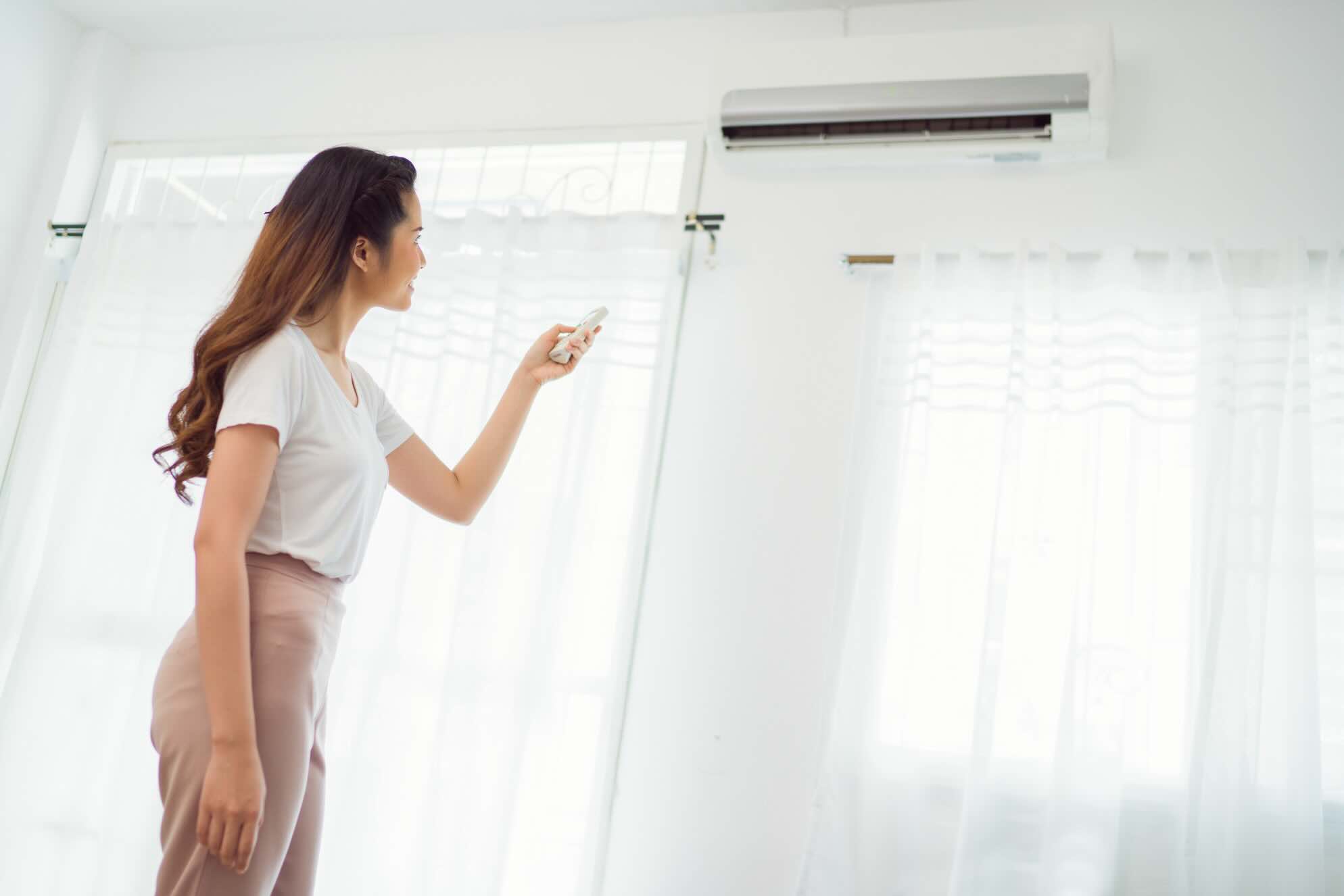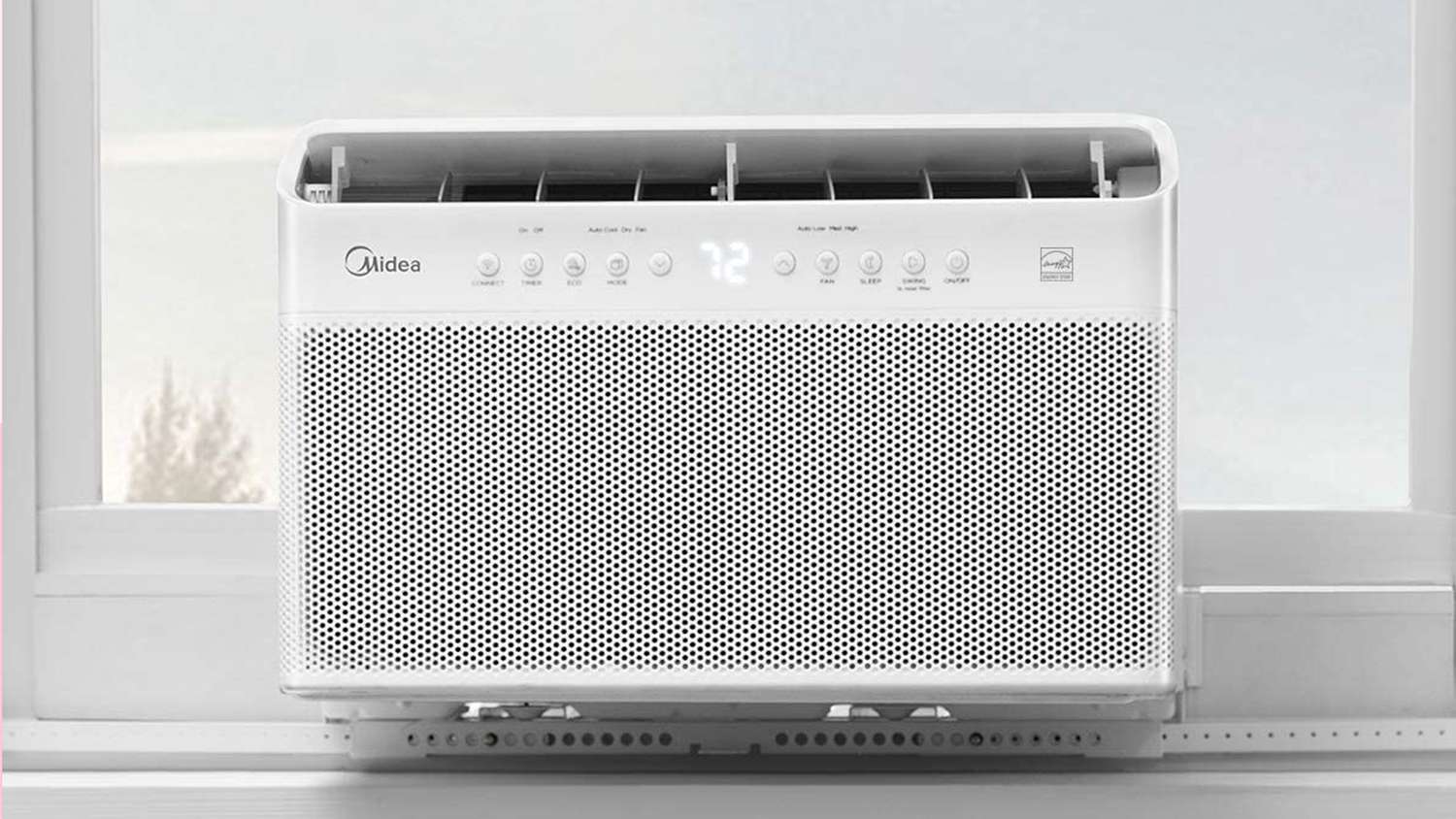Home>Home Maintenance>How Many Volts Does An Air Conditioner Use
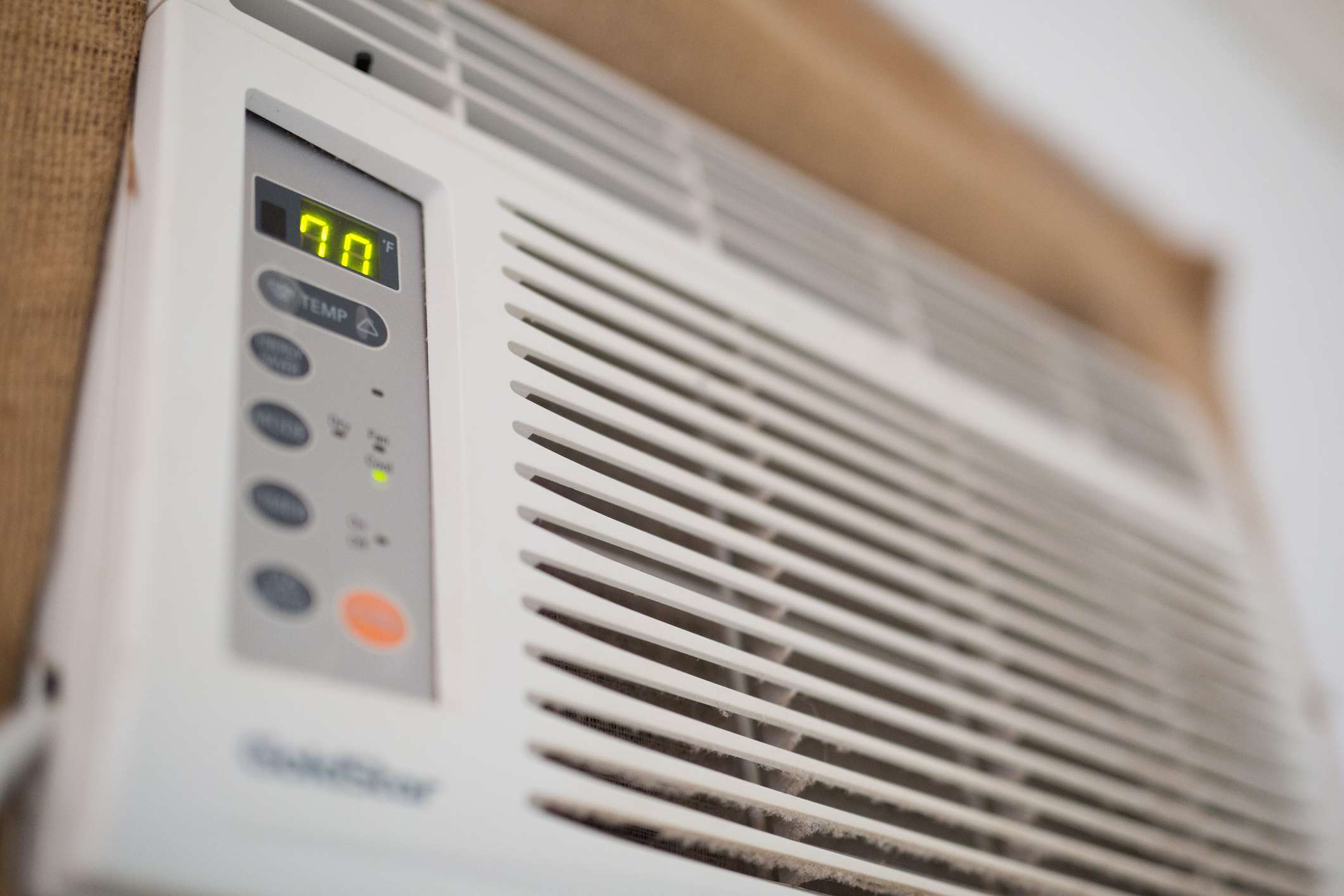

Home Maintenance
How Many Volts Does An Air Conditioner Use
Modified: March 7, 2024
Find out the voltage requirements of your air conditioner and learn about home maintenance tips for optimal performance.
(Many of the links in this article redirect to a specific reviewed product. Your purchase of these products through affiliate links helps to generate commission for Storables.com, at no extra cost. Learn more)
Introduction
Welcome to the world of home maintenance! If you’re a homeowner, you know how important it is to keep your house in top condition. And one essential aspect of home maintenance is ensuring your air conditioner is running smoothly.
When it comes to air conditioners, understanding their voltage requirements is crucial. Voltage is the measurement of electrical potential, and it plays a significant role in determining how effectively your air conditioner functions. In this article, we will delve into the topic of air conditioner voltage and explore its various aspects.
Whether you’re a seasoned homeowner or a first-time buyer, this guide will provide you with the knowledge you need to make informed decisions about your air conditioning system. So, let’s dive in and uncover the mysteries behind air conditioner voltage!
Key Takeaways:
- Ensure your air conditioner operates safely and efficiently by understanding its voltage requirements. Check the manufacturer’s specifications, inspect your electrical panel, and consult a professional if needed.
- Prioritize safety when dealing with air conditioner voltage. Have your unit installed by a professional, maintain proper grounding, and familiarize yourself with safety shut-off features.
Read more: How Many KWh Does An Air Conditioner Use
Understanding Voltage in Air Conditioners
Before we dive into the specifics of air conditioner voltage requirements, let’s start by understanding what voltage is and how it relates to the functioning of your air conditioning system.
Voltage, also known as electric potential difference, is the measure of electrical pressure or force that drives the flow of electricity in a circuit. In the case of air conditioners, voltage is the energy that powers the components and enables them to perform their intended functions.
Most modern air conditioners operate on standard alternating current (AC) voltage, typically ranging from 110 volts to 240 volts. This voltage is necessary for running the compressor, fan motors, control circuitry, and other components of the air conditioner.
The voltage requirements of an air conditioner depend on various factors, including the size and capacity of the unit, as well as the specific design and manufacturer recommendations. It’s essential to understand these requirements to ensure that your air conditioner operates safely and efficiently.
Now that we have a basic understanding of voltage let’s explore how to determine the voltage requirements of your air conditioner.
Determining the Voltage Requirements of an Air Conditioner
When it comes to determining the voltage requirements of your air conditioner, there are a few key factors to consider. Let’s take a closer look at the steps you can take to ensure you have the correct voltage for your AC unit.
1. Check the manufacturer’s specifications: The first and most reliable source of information regarding your air conditioner’s voltage requirements is the manufacturer’s specifications. The user manual or product documentation should clearly state the voltage rating that the unit operates on. Make sure to double-check this information, as using the wrong voltage can lead to serious damage to your air conditioner.
2. Inspect the electrical panel: Another way to determine the voltage requirement is by looking at the electrical panel that supplies power to your air conditioning system. In most cases, the panel will indicate the voltage and current ratings for each circuit. Look for a circuit breaker or fuse with a label that corresponds to your air conditioner. The label should indicate the voltage rating in volts.
3. Consult a professional: If you are unsure about the voltage requirements or don’t have access to the necessary information, it’s always best to consult a licensed HVAC technician or an electrician. They have the expertise and tools to accurately determine the voltage requirement of your air conditioner and can provide advice based on your specific situation.
Remember, accurately determining and ensuring the correct voltage supply to your air conditioner is essential for its safe and efficient operation. Using the wrong voltage can lead to malfunctions, damage to components, decreased performance, and even the risk of fire.
Next, we’ll explore the factors that can affect the voltage requirements of an air conditioner.
Factors Affecting the Voltage Requirement of an Air Conditioner
Several factors can influence the voltage requirements of an air conditioner. Understanding these factors can help you make informed decisions when it comes to installing or replacing your AC unit. Let’s explore the key factors that can affect the voltage requirement:
1. Size and Capacity: The size and capacity of an air conditioner can greatly impact its voltage requirement. Larger units with higher cooling capacities typically require higher voltage inputs to handle the increased power demands. Smaller units, on the other hand, may operate on lower voltage ratings.
2. Efficiency Rating: Energy-efficient air conditioners, labeled with the SEER (Seasonal Energy Efficiency Ratio) rating, can impact the voltage requirement. Higher SEER-rated units often require lower voltages to achieve the same level of cooling as lower-rated models. It’s important to consider the SEER rating when determining the voltage requirement for your air conditioner.
3. Type of Air Conditioner: Different types of air conditioners, such as window units, split systems, or central air conditioning systems, may have varying voltage requirements. Window units, for example, typically operate on standard 120-volt household power, while larger central air conditioning systems may require 220-240 volts.
4. Climate and Environmental Factors: The climate and environmental conditions of your area can also impact the voltage requirement. Extremely hot or humid climates may require air conditioners with higher voltage ratings to handle the increased cooling load. It’s important to consider the specific requirements based on your geographical location.
5. Additional Features and Accessories: Air conditioners with additional features and accessories, such as heat pumps or integrated smart controls, may have specific voltage requirements. These added functionalities may require higher voltages or dedicated electrical circuits to support their operation.
It’s crucial to consider these factors when determining the voltage requirement for your air conditioner. Consulting with a professional HVAC technician or electrician can help ensure that you choose the right voltage for your specific air conditioning system.
Now that we understand the factors affecting voltage requirements, let’s explore common voltage ratings for air conditioners.
Air conditioners typically use 115-230 volts, depending on the size and type. Always check the manufacturer’s specifications for the exact voltage requirement.
Common Voltage Ratings for Air Conditioners
When it comes to air conditioners, several common voltage ratings are typically used. Understanding these voltage ratings can help you select the right unit for your home. Let’s take a look at some of the most frequently encountered voltage ratings in air conditioning systems:
1. 110-120 Volts: This is the standard household voltage rating used for smaller air conditioners, primarily window units or portable air conditioners. These units are designed for cooling individual rooms or small spaces and typically operate on standard residential electrical circuits.
2. 208-230 Volts: This voltage rating is commonly used for larger window units, as well as for split systems and some smaller central air conditioning units. These systems offer higher cooling capacities and are suitable for cooling multiple rooms or larger spaces.
3. 240 Volts: Many central air conditioning systems, including HVAC systems, operate at 240 volts. These systems are designed to provide cooling for an entire house and require a dedicated electrical circuit to handle the higher power demands.
4. 277-480 Volts: These voltage ratings are commonly used in commercial or industrial settings and are typically not found in residential applications. They are used for larger-scale air conditioning systems that are capable of cooling larger buildings or facilities.
It’s important to note that these voltage ratings may vary depending on the specific manufacturer and model of the air conditioning unit. Always refer to the manufacturer’s specifications or consult with a professional to determine the correct voltage rating for your air conditioner.
Now that we have discussed common voltage ratings, let’s move on to choosing the right voltage for your air conditioner.
Choosing the Right Voltage for an Air Conditioner
Choosing the right voltage for your air conditioner is crucial to ensure its safe and efficient operation. Here are some steps to help you select the appropriate voltage for your AC unit:
1. Consult the Manufacturer’s Recommendations: The best place to start is by reviewing the manufacturer’s recommendations. The user manual or product documentation should provide clear instructions on the voltage rating that is suitable for your air conditioner. Following the manufacturer’s guidelines will help ensure that your AC unit operates optimally.
2. Assess Your Electrical System: Next, evaluate your home’s electrical system to determine the available voltage. Check your electrical panel to see the voltage options indicated on the circuit breakers or fuses. Ensure that the available voltage matches or is compatible with the recommended voltage rating for your air conditioner.
3. Consider Power Supply Capacity: Assess the power supply capacity of your electrical system. Older homes may have limited capacity, and the existing electrical infrastructure may not support higher voltage requirements. If you’re considering upgrading to an AC unit with a higher voltage rating, consult with an electrician to determine if any electrical upgrades are necessary.
4. Seek Professional Advice: If you’re uncertain about the voltage requirements or have specific concerns, it’s always wise to consult with a licensed HVAC technician or an electrician. They can assess your electrical system, review the specifications of your air conditioner, and provide expert guidance on choosing the right voltage for optimal performance.
Choosing the correct voltage for your air conditioner is essential for its safe and efficient operation. Ensuring a proper match between the voltage rating and your electrical system will help prevent potential damage to the AC unit and reduce the risk of electrical hazards.
Next, let’s address some important safety considerations when it comes to air conditioner voltage.
Safety Considerations for Air Conditioner Voltage
When dealing with air conditioner voltage, it’s crucial to prioritize safety. Here are some important considerations to keep in mind:
1. Proper Installation: To ensure safety, always have your air conditioner installed by a qualified professional. Improper installation can lead to electrical hazards and pose a risk to both your home and your well-being. A professional installer will follow the necessary safety protocols and ensure that the unit is wired correctly for the specified voltage.
2. Electrical Wiring: Ensure that the electrical wiring in your home meets the necessary safety standards. Faulty wiring can result in electrical malfunctions, overheating, and even electrical fires. Regularly inspect your electrical system and address any wiring issues promptly to maintain a safe operating environment for your air conditioner.
3. Grounding: Proper grounding is a critical safety measure. Ensure that your air conditioner is properly grounded, as this helps protect against electrical shocks and promotes the safe dissipation of electrical energy. Consult an electrician to ensure that your AC unit is correctly grounded according to local electrical codes.
4. Maintenance and Inspections: Regular maintenance and inspections of your air conditioning system are essential for identifying potential electrical issues. Schedule annual inspections with a professional HVAC technician who can identify any electrical concerns, such as loose connections or worn-out components, that could pose safety hazards.
5. Familiarize Yourself with Safety Shut-off Features: Understand the safety shut-off features of your air conditioner, such as circuit breakers or shut-off switches. These features are designed to protect against power surges and electrical malfunctions. In the event of an electrical issue, these safety mechanisms will automatically shut off power to the unit, minimizing the risk of electrical damage or hazards.
6. Use Surge Protectors: Consider using surge protectors or whole-house surge protection systems to safeguard your air conditioner against power surges. Voltage fluctuations and electrical surges can damage components and reduce the lifespan of your AC unit. Surge protectors help regulate voltage levels, protecting your air conditioner from potential damage.
Remember, safety should always be a top priority when dealing with electricity and air conditioning systems. If you have any concerns or are unsure about any electrical aspects of your air conditioner, it’s best to consult with a qualified professional.
Now, let’s wrap up our discussion on air conditioner voltage.
Conclusion
Understanding the voltage requirements of your air conditioner is essential for maintaining a safe, efficient, and reliable cooling system in your home. Whether you’re installing a new unit or replacing an existing one, taking the time to determine and choose the correct voltage is crucial. By following the manufacturer’s recommendations, assessing your electrical system, and seeking professional advice when needed, you can ensure that your air conditioner operates optimally and safely.
Factors such as size, capacity, efficiency rating, and climate can all affect the voltage requirements of your air conditioner. It’s important to consider these factors and select the appropriate voltage to ensure proper functionality and energy efficiency.
Remember to prioritize safety when dealing with air conditioner voltage. Professional installation, proper electrical wiring, grounding, regular maintenance, and knowledge of safety shut-off features are all critical aspects of ensuring a safe operating environment for your air conditioning system.
If you have any doubts or concerns about air conditioner voltage or electrical aspects related to your AC unit, it’s always best to consult with a licensed HVAC technician or electrician. They have the expertise to assess your specific situation and provide guidance tailored to your needs.
We hope this guide has provided you with valuable insights into understanding air conditioner voltage requirements. By making informed decisions and taking necessary safety precautions, you can enjoy a comfortable and worry-free cooling experience in your home.
Frequently Asked Questions about How Many Volts Does An Air Conditioner Use
Was this page helpful?
At Storables.com, we guarantee accurate and reliable information. Our content, validated by Expert Board Contributors, is crafted following stringent Editorial Policies. We're committed to providing you with well-researched, expert-backed insights for all your informational needs.



